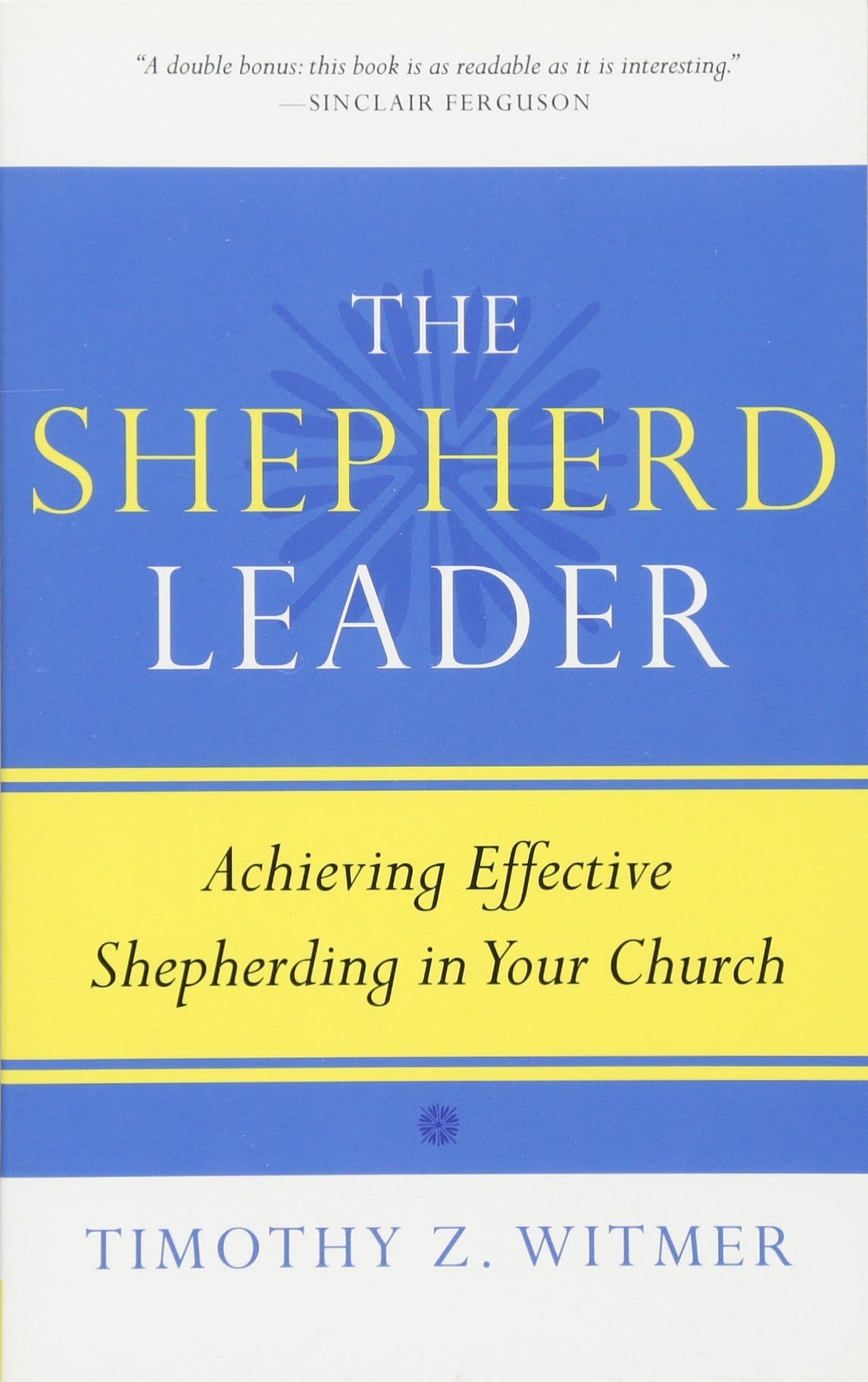More and more pastors are realizing they will be held accountable for the Christians under their care. Timothy Z. Witmer is one of the men helping us rediscover this basic, biblical fact. Witmer is professor of practical theology at Westminster Theological Seminary and the minister of preaching at Crossroads Community Church (PCA) in Upper Darby, Pennsylvania.
In The Shepherd Leader, Witmer charges pastors to vigorously and personally shepherd their sheep. Preaching is not enough. In many ways, he is following in the footsteps of Richard Baxter who wrote in The Reformed Pastor that pastors must not limit their ministry to preaching and teaching. Baxter wrote:
If we cannot do all, let us do what we can; for, if we neglect it, woe to us, and to the souls committed to our care! Should we pass over all these other duties, and, by a plausible sermon only, think to prove ourselves faithful ministers, and to put off God and man with such a shell and vizor, our reward will prove as superficial as our work. (126–27)
Witmer agrees:
It is our restored, loving relationship with the Lord that flows over into transforming our relationships with other people, particularly those who are part of his flock. For the elder, as an undershepherd of the flock, this relational dynamic is crucial to effective care of the sheep. The general description of the responsibilities of shepherds must begin, therefore, with the dynamic of knowing the sheep. (109)
The Shepherd Leader is divided into three parts. Part one deals with the biblical and theological foundation for understanding that shepherding is at the heart of pastoral ministry. By personally tending to the sheep, pastors reflect the tender care God has always shown his people. The writers of the New Testament left no room for elders to be merely decision-makers—they must “be involved personally with the sheep” (41). In a quick survey of church history, Witmer argued for the importance of seeing shepherding as an essential component of the pastor’s calling.
Part two is the meat of the book. Witmer presents what he calls “a comprehensive matrix for ministry.” Shepherds ought to know, feed, lead, and protect the sheep. Knowing the sheep means being able to identify who is in the congregation and relating to them personally. Feeding the sheep means engaging in a robust pulpit ministry and encouraging personal discipleship. Leading the sheep requires casting a clear, compelling vision for the direction of the church and exemplifying personal holiness. Protecting the sheep means defending sound doctrine and practicing private as well as public church discipline.

The Shepherd Leader: Achieving Effective Shepherding in Your Church
Timothy Witmer
The Shepherd Leader: Achieving Effective Shepherding in Your Church
Timothy Witmer
Leaders in the church are called to be shepherds, not a board of directors. This requires involvement in a personal shepherding ministry among the people. The Shepherd Leader unpacks the four primary ministries of shepherds—knowing, feeding, leading, and protecting—on macro (churchwide) and micro (personal) levels, providing seven elements to be incorporated into an effective shepherding plan.
In part three, Witmer gets into the nuts and bolts of church life. He leaves readers with seven exhortations: stay true to the Bible; implement a systematic shepherding plan; make sure everyone is shepherded by an elder; be relational; keep the four components of shepherding always in mind: know, feed, lead, and protect; hold shepherds accountable for personally shepherding; and, finally, bathe it all in prayer.
Three Reasons to Read The Shepherd Leader
First, to recover a biblical view of plural-elder leadership in the local church. Witmer rightly asserts that it is unrealistic for a man to give himself to preaching and teaching while he is also the only one in the congregation taking responsibility for shepherding the flock:
We look at the plethora of reports that come out year after year about pastoral burnout and the alarming number of clergy leaving their churches or leaving the ministry altogether. Might not one of the contributing factors be that they are not receiving the help they need shepherding the flock prescribed in the Scriptures (43).
Second, to recover a biblical view of careful church membership. Too many churches today have membership rolls that are so large and out-of-date that the shepherds of that congregation cannot begin to pay careful attention to the souls of the sheep entrusted to their care:
New Testament evidence clearly indicates that there are particular sheep for which particular shepherds are responsible. . . . The elders exercise their God-given shepherding authority over particular believers in a particular place. This is the fundamental element of knowing the sheep in a macro sense. Knowing who is in your flock and knowing those for whom you are accountable is where the shepherding begins. (110)
Third, to recover a biblical view of pastoral care. It is not enough to have more than one elder. It is insufficient to know who is in the flock. These are simply means to an end. The end is pastoral care:
If you have any doubt about the fruitfulness of investing time in personally ministering the Scriptures to your flock, consider the following question, “When have you experienced the most growth as a believer?” For many of us this brings back thoughts of those who invested their lives in us personally in discipleship relationships (151).
Two Things to Keep in Mind
First, Witmer assumes the Presbyterian distinction between ruling and teaching elders. His audience is, at times, those who would doubt that ruling elders must share the responsibility to shepherd the congregation. Of course, a Baptist congregation with plural elders could suffer from a similar problem—lay elders who leave the shepherding responsibilities to those who are paid. Nonetheless, non-Presbyterian readers should be aware that at times it feels like we are listening to an in-house conversation.
Second, Witmer does not address what it means to say that a congregation is a “holy priesthood” (1 Peter 2:5). To what extent are individual members in the congregation responsible to shepherd each other? God has undoubtedly ordained unique offices in the local church. Elders are unquestionably called to shepherd the flock. However, if we are a “holy priesthood,” then there is a sense in which we must shepherd each other. Perhaps this is simply a difference in emphasis. One can emphasize the congregation’s responsibility to care for itself and one can emphasize the elders’ responsibility to care for the flock.
What you emphasize, though, will impact your understanding of the shepherd’s responsibility. If you stress the need for the elders to care for the sheep, you will likely expect the elders to personally shepherd each member of the church (Witmer’s view). If, however, you stress the need for every member to care for every other member, you will likely expect the elders to ensure that every member is shepherded. While I hold the latter view, I still appreciate Witmer’s exhortation that every elder see himself as a shepherd.
Conclusion
The Shepherd Leader is an excellent and practical guide for pastors and elders eager to take their spiritual oversight seriously. Though I would have liked to seen greater discussion on the role of the congregation in shepherding, this does not detract from the important point that an elder who fails to take seriously his responsibility to shepherd is not truly an elder.

































